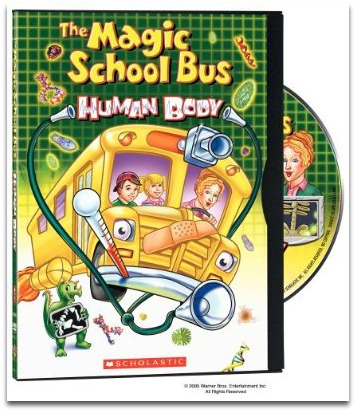 “I hate school!” your child yells as they storm off to their room.
“I hate school!” your child yells as they storm off to their room.
Ugggh! Such a heartbreaking and exhausting statement.
School is an important part of every child’s life.
Irrespective of whether they go to a public school, a private school, virtual school, are homeschooled or have some combination of these, school is where your child learns the academic basics that will carry through with them into their adult years.
It is also where they get their first lessons in social development, problem solving, conflict resolution, planning and organization.
And when your child declares (repeatedly) that they hate school, it can be stressful and trigger all kinds of fear and frustration.
I understand it. I really do. It wasn’t very long ago that my son uttered those same words on a daily basis. I rarely ever heard anything positive about school from him.
We’ve gone through some challenging situations as parents, but this one was particularly stressful to me. First through public school and then homeschool, I had to figure out a way to help my child learn to love school.
I documented the whole process as much as I could, and I want to share the things I learned along this journey with you. Hopefully, something within it will resonate with you, and more importantly with your child.
Here we go –
#1. Dive Into The Social Aspect Of School
 When my son climbed in my minivan every day after school with that same frown on his face, I would always feel such disappointment and sadness.
When my son climbed in my minivan every day after school with that same frown on his face, I would always feel such disappointment and sadness.
I hated that he hated his school days so much. He always complained of bullies on the playground, rude comments, and basic behavior of “kids being kids” that often results in hurt feelings.
Every day we would talk about all of the different behaviors, but I realized it wasn’t really sinking in. So finally, we sat down and went through each individual person or situation he was struggling with.
We talked about how some situations were probably taken differently than intended. Once they were explained, he felt better about these.
Then there were situations with some kids that weren’t necessarily being a bully but just weren’t being nice. So, we talked about different things he could do to deal with social exclusion.
Finally, we got to a few situations of kids that were in fact being bullies. Those were the situations I really homed in on.
I made sure he understood that bullying was not okay, nor should he put up with it. We told him to be sure to report any instance of bullying to his teachers. After talking with him, we decided to give him the opportunity to handle these social situations on his own for a set amount of time.
We would check in with him often and if it appeared that things weren’t improving or if the bullying situations weren’t being taken seriously then we would step in and speak with the school about those specific situations.
So, if your child really hates school, put yourself in their situation. Go to a time where you had an awkward social encounter. Or even worse, dealt with someone that enjoyed being flat out mean to you. Did you not want to avoid any situation that included that person or people? Did it not take the joy out of school in general?
Well, our children are no different. While we can’t protect them from every mean thing being said to them, by keeping a close eye on their social lives, listening non-judgmentally and providing help where they need it, we can be their allies in this fight.
Handling the social aspect of school well is very important as it could easily impact their love of school and learning.
#2 Check Out The Curriculum
 Okay, so your child is a social butterfly, and everyone loves them. That is awesome! But they still don’t like school very much. What now?
Okay, so your child is a social butterfly, and everyone loves them. That is awesome! But they still don’t like school very much. What now?
It’s time to look at the curriculum. With our son we’ve been at both ends of the spectrum with this.
At first in his younger school years, because of some of his early life challenges, he struggled with some areas of curriculum. During this time, he hated school because it was too challenging to him. He felt like he worked and worked and wasn’t getting the results that he wanted.
Then in his last year of public school, everything seemed to click, and he ended up surpassing the curriculum. He continued to work hard as before, but now this ended up with him being bored because the curriculum was no longer challenging enough.
There was no middle ground.
If your child is struggling with school curriculum in either fashion, I have a few resources that might help depending upon your child’s age.
For my younger child, I used ABCMouse.com to give him a head start and get him interested in learning.
For my middle son, we used resources such as starfall.com and education.com to give him extra practice when needed and also a variety of resources and lesson plans that were designed by teachers.
When all else fails, I always go to my favorite homeschool site allinonehomeschool.com. It is totally free and provides lesson plans for a variety of subjects. Even if your kids aren’t homeschooled, you could look there to find extra practice or even give them advanced work if they aren’t challenged enough by their regular schoolwork.
#3 Communicate With The School
 After realizing my son’s struggles, I scheduled a parent/teacher conference. We discussed all of the areas that he was advanced in, any trouble areas he had, and we also talked about his social skills.
After realizing my son’s struggles, I scheduled a parent/teacher conference. We discussed all of the areas that he was advanced in, any trouble areas he had, and we also talked about his social skills.
It helped the teacher and I both to understand where we each stood. Simply put, we got on the same page and decided to work together to help salvage his school experience.
One suggestion that was made was for me to volunteer in the classroom. It was a great way for me to see what was actually going on inside the classroom.
I was also able to be involved in his learning experience and it made him feel special because his mom was in the classroom. That is always an added bonus.
And the best thing is, studies show that when parents are involved in kids’ school, children not only have better academic performance but tend to have fewer behavioral problems. In fact, in middle schoolers, parents’ involvement in school life ranked higher than helping with homework when it comes to improving a child’s academic performance.
That is definitely reason enough to jump on the bandwagon of volunteering at school. Trust me, it will be worth the sacrifice made.
So go ahead and contact the school. Be honest with the fact that your child isn’t enjoying their time there.
Try to work with the teaching staff to find out if there are opportunities for you to volunteer and if there are things that you can help with at home to boost their learning experience at school.
Teachers are usually very helpful. We all know that the majority do their job because they care and love kids. So, reach out to them. They’ll be glad you care!
#4 Think Outside the Box
 This may sound kind of crazy, but I noticed my son had better days at school when he was one of the earliest arrivals for the day.
This may sound kind of crazy, but I noticed my son had better days at school when he was one of the earliest arrivals for the day.
It made him feel as though he had a head start on the day. And when you stop and think about it, do you not feel better when you are early and feel put together? I know I do.
I began making it more of a priority to not just be there before the bell, but to be there at a time that started his day off on the right foot.
It also sends the message that school is important without having to beat them over the head with words. When something is very high on our priority list like a job interview or even a vacation, we aren’t slow to get there. We make sure we are there early.
Well, keep that same mindset for your kids and school. Anything that can help start their day better is worth the effort.
According to Parenting.com, it is also important to be punctual at the end of the school day as well. They say, “standing alone while the other kids are happily reuniting with loved ones can cause a young child to worry that by going to school, they risk losing you — or getting lost.”
That is a very real concern for a lot of children. So being punctual before school could help start the day off on the right foot. Being punctual at the end of the day, could offer security to your child and end the day at that same positive note that it started with.
#5 Get Creative
A lot of times kids don’t like school because they get bored with all of the book work. What kids don’t realize is that they can learn apart from book work.
If you begin to grab your children’s attention outside of book work, suddenly the book work doesn’t become so cumbersome.
For instance, my son is not a reader. He always felt it was boring and just didn’t care about it. I began by lecturing about how reading comprehension would be needed his whole life.
Yeah, yeah, yeah.
It went in one ear and came flying out the other. When you are 9 years old you rarely think about long term. You want to enjoy your now. Which is a great attitude to have and one I don’t want to change in my kids.
So, I began to think of how I could make reading more fun. We discovered our local library. They have lots of activities; the librarians are so nice; and I began letting him go and find his own books.
Now, the deal is we don’t go back to the library until we’ve read all of our books. So, if you want to go back and participate in all of the fun activities and get the excitement of picking new books then you must read.
He is a reader now!
We do the same thing with science and math. I try to find a way to bring it to life. So, when we are doing a certain study, my children get a reward at the end of the unit that brings that area to life.
I accomplish this with trips to the local children’s museum, the zoo, and even nature hikes. My kids are very hands on so that drives them to get through the book work.
When education becomes a part of your everyday life, it no longer feels like a chore. If you homeschool (like we do now), this is fairly straight forward to incorporate in your curriculum. If not, you can still tap into the school’s curriculum and find ways to bring it to life on your own time. You could even go so far as to find ways to bring homework assignments to life.
If you aren’t quite sure how to do all of this, I do recommend checking out great homeschool sites such as Easy Peasy All In One Homeschool and Confession Of A Homeschooler for great ideas irrespective of whether you homeschool or not. Since keeping kids engaged to make sure they are learning is a struggle we all face every day, these sites provide tons of great, creative ideas.
You can also search on Pinterest. A lot of public school teachers keep blogs and post ideas they’ve used within their own classrooms that can be easily duplicated at home. My favorite boards are:
 And don’t forget to turn to TV for lightening up the learning! Yes, it sounds counter-intuitive, but it works amazingly well. Say your kids are learning about the human body and feel completely bored with the topic and say those dreaded words, “Ahhh! I hate school!”… You can turn to any of these shows to sneak in the learning
And don’t forget to turn to TV for lightening up the learning! Yes, it sounds counter-intuitive, but it works amazingly well. Say your kids are learning about the human body and feel completely bored with the topic and say those dreaded words, “Ahhh! I hate school!”… You can turn to any of these shows to sneak in the learning
- The Magic School Bus – Human Body
- Rock N Learn – Human Body
- National Geographic – Human Body Collection Season 1
Or you could take a trip to the children’s museum where they can see, feel, and manipulate a real skeleton. You just have to get creative and fortunately, we live in the age of the internet so there are lots of parents and teachers out there willing to help you along the way.
#6 Remind Your Child That They Hold The Key
I have to remind my kids almost daily that their attitude can be the difference between a good day or a bad day. The same rings true for us too!
If you wake-up late, have a bad hair day and trip on the stairs all before 8am, you have a choice. You can dwell on those first few hours of your day and rob yourself of the remaining hours… Or you can chalk it up to a rough morning and roll on with your day.
The same applies to our children. If they don’t like science, that’s okay. They can work hard on science outside of school. They can find ways to make it interesting with your help. They can ultimately realize that science is only a small part of their school day and be determined to push through it and enjoy the rest of school.
I don’t know about you, but I have certain tasks throughout my day that I just don’t enjoy doing. I don’t enjoy folding laundry; I hate emptying the litter box; and I don’t like wiping down my bathroom toilets every day.
But in reality, these tasks need done. So, I push through and see the end result is worth completing the task at hand.
My youngest is in kindergarten. He didn’t want to learn sight words, but I discovered he loved hearing that he had ‘graduated.’ It really excited him. So, I used that word every time he would successfully complete a lesson. He had ‘graduated’ to the next level.
Well, a lot of times those are the same outlooks we need to give our kids of every age. They may not like having to do what they are doing at the moment but it is all part of making it to the next level, so we persevere.
According to Focus On The Family it is important for us to “model a positive attitude about school and help your children get excited about the new adventure that awaits them.”
If you share stories of how you hated school too then you really aren’t helping drag your child out of this pit of negativity. It is okay to be understanding but always try to place school in a positive light.
Ultimately, our attitude can make all of the difference in all of our lives. But your child’s outlooks and attitude on school is the key in most situations to their success with school.
The 2-Minute Action Plan for Fine Parents
Let’s have a quick review to see where you and your child stand with their educational needs:
- Does your child often declare “I hate school”? How do you respond?
- Do you incorporate education into each day outside of school?
- Do you try to give your child a positive spin to their emotions about school?
- Are you involved in their education? Have you spoken to the teacher or do you attend school functions (if possible)?
- Are you aware of your child’s social struggles?
- Finally, do you make it a priority to get them to school early to start their day off on the right foot?
The Ongoing Action Plan for Fine Parents
- Sit down and speak with your child – find out what they are struggling with and help them figure out a way to effectively handle the situation.
- Talk with your child’s teacher – get on the same page with them with the common goal to help your child succeed in school while loving the experience.
- Ask your child what time they’d like to be at school – punctuality can certainly help start the day off on the right foot.
- Talk to your child about their attitude towards school – kids need to understand from the earliest of age that the attitude we take on about anything in life will determine the outcome
- Incorporate learning into their everyday activities – get creative to encourage the love of learning and school.


Great article!Liked it
I perfectly understand children who hate school. They say this because they have difficulty learning. After all, they probably like going to school and communicating with other children. I suggest that parents not force their children to complete tasks that they cannot afford, but order some work from specialists. On the site Writing Judge you can choose such a service. And in their free time, children are allowed to rest more and you will soon see a positive trend in your child’s attitude to school.
Who wipes down their bathroom toilets every day?
Someone who has 3 boys!!!
Thanks for sharing interesting thoughts. They can inspire others to change something. By the way, this cool essay example on a very popular topic written by the professional writer can also inspire students to write their own essay even better.
Thank a lot! As always great post with simple but genius advices! I always reading your articles with pleasure!
I agree That Parents must be best friend to their children, than it will be much easier to solve most of problems of their child!
A good guidance to parents. Thank you to share this information through your article.
I can say one thing if a parent is a friend to their child, it helps in many ways like getting rid hatting the school, any problems with school friends/teachers who come for their next class.
I can also say that parents and teachers role plays vital role in their child/students mind.
students also have one anxiety like what all their friends spend their vacation/ how the teachers behaves with them.
Yes, I totally agree! A parent should be in their child’s corner to help them overcome any fears or anxieties they may face.
I really admire from this blog since i have read.